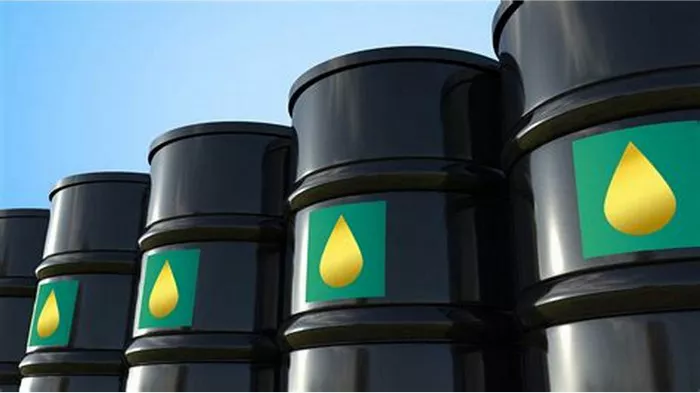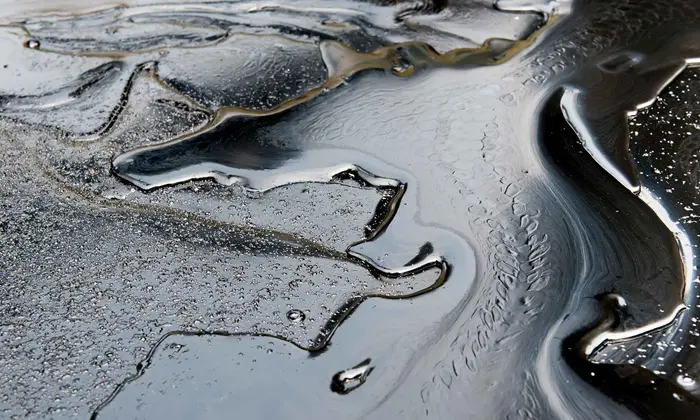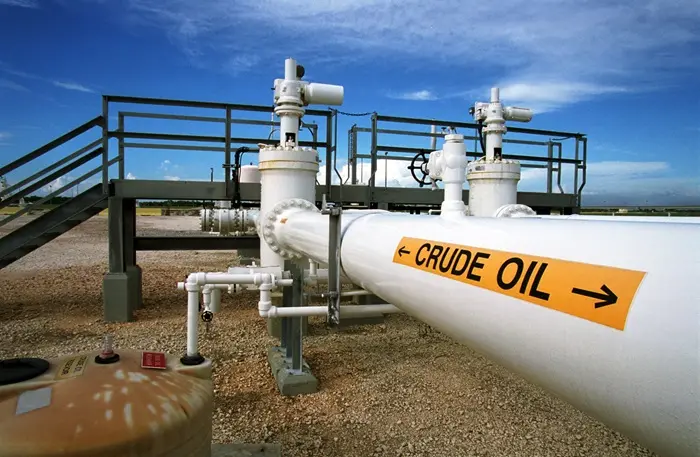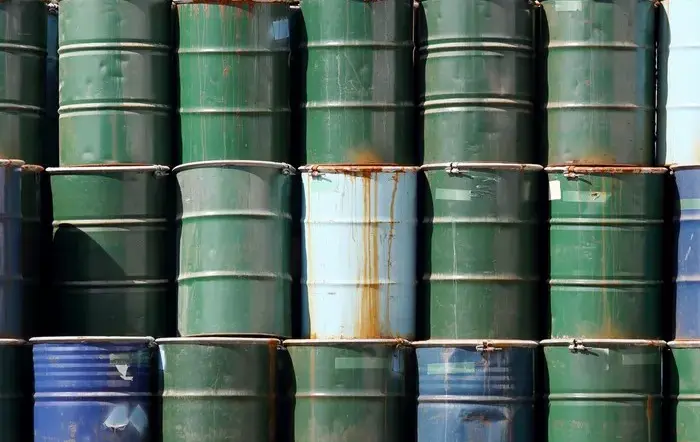Crude oil is a key natural resource and one of the most vital commodities in the world. It is not only used as fuel but also serves as the raw material for a wide range of products that we use daily. Crude oil is refined into various by-products that have extensive applications in many industries. In this article, we will explore the various by-products produced from crude oil and their significance.
What Is Crude Oil?
Crude oil is a naturally occurring liquid found in geological formations beneath the Earth’s surface. It is primarily composed of hydrocarbons, but it also contains small amounts of other compounds such as sulfur, nitrogen, and oxygen. Crude oil is extracted from wells and is then transported to refineries, where it undergoes a process of separation and refinement to produce usable products.
Crude oil is not a single substance but a mixture of many different compounds. The refining process breaks down crude oil into its various components, each of which has different physical properties and applications. The by-products of crude oil can be grouped into several categories, including fuels, petrochemicals, and industrial products.
The Refining Process of Crude Oil
The refining process of crude oil is a complex and multi-step operation. Once crude oil is extracted, it is transported to a refinery where it undergoes a series of processes to separate its components based on their boiling points. These processes include:
Distillation – The first step in refining, where crude oil is heated and separated into different components (fractions) based on their boiling points.
Cracking – This process breaks down larger, heavier molecules into lighter, more valuable products.
Reforming – The rearrangement of molecules to produce higher-quality products.
Treating – The removal of impurities such as sulfur and nitrogen to meet environmental standards.
After these processes, the crude oil is divided into a variety of by-products, each of which has its own unique uses.
Major By-products of Crude Oil
1. Gasoline
Gasoline, or petrol, is one of the most well-known and widely used by-products of crude oil. It is primarily used as fuel for internal combustion engines in vehicles such as cars, trucks, and motorcycles. Gasoline is derived from the lighter fractions of crude oil and is refined to meet specific performance and environmental standards.
Gasoline is a mixture of hydrocarbons, including alkanes, cycloalkanes, and aromatic compounds. It is refined to have the right octane rating, which measures its ability to resist “knocking” or premature combustion in engines. The production of gasoline represents a significant portion of crude oil refinement, as demand for automotive fuel is high worldwide.
2. Diesel
Diesel fuel is another major by-product of crude oil. It is used in diesel engines, which are commonly found in trucks, buses, ships, and industrial machinery. Diesel is produced from the middle fractions of crude oil, and its properties are refined to improve performance and reduce emissions.
Unlike gasoline, diesel contains a higher concentration of heavier hydrocarbons, which makes it more energy-dense and efficient for heavy-duty applications. Diesel is essential for transportation, particularly in sectors like logistics and public transportation, and is also widely used in power generation.
3. Jet Fuel
Jet fuel, often referred to as aviation fuel, is derived from crude oil and is used to power aircraft engines. It is a highly refined product designed for high-performance engines in planes. There are different types of jet fuel, with Jet A and Jet A-1 being the most common for commercial airliners.
Jet fuel is essentially a kerosene-type product with additives to enhance performance, such as anti-icing agents. It is a critical by-product of crude oil, given the importance of aviation in global transportation and trade.
4. Liquefied Petroleum Gas (LPG)
Liquefied Petroleum Gas, or LPG, is a by-product that consists mainly of propane and butane. It is produced during the refining of crude oil and natural gas processing. LPG is stored as a liquid under pressure and is used as a fuel for heating, cooking, and in some cases, as a fuel for vehicles.
LPG is a versatile and clean-burning fuel, which makes it popular in both domestic and industrial applications. It is used widely in areas where natural gas infrastructure is not available, as it can be transported in cylinders or tanks.
5. Fuel Oil
Fuel oil is a heavy, viscous liquid that is derived from the heavier fractions of crude oil. It is used primarily as a fuel for industrial boilers, power plants, and large ships. Fuel oil is produced by distilling crude oil and then processing the heavier fractions into a refined product.
There are different grades of fuel oil, including bunker fuel, which is used in large ships, and heavy fuel oil, which is used in power generation. Fuel oil is also used in residential heating systems in some parts of the world.
6. Asphalt
Asphalt, or bitumen, is a by-product of crude oil refining that is used primarily in the construction industry. It is used to create roads, parking lots, and roofing materials. Asphalt is derived from the heaviest fractions of crude oil, which are not suitable for gasoline or diesel production.
Asphalt is a highly durable and water-resistant material, making it ideal for use in road construction and other infrastructure projects. It is produced by blending bitumen with other materials like gravel or sand to form asphalt concrete.
7. Petrochemicals
Petrochemicals are chemicals derived from crude oil and natural gas that are used to create a wide variety of products. These include plastics, synthetic rubber, fertilizers, detergents, and other industrial chemicals. Petrochemicals are created by breaking down crude oil into simpler molecules through a process known as cracking.
Some of the most important petrochemicals include:
Ethylene – Used to produce polyethylene, which is the most widely used plastic in the world.
Propylene – Used to make polypropylene, a material used in packaging, textiles, and automotive parts.
Benzene – Used in the manufacture of synthetic rubber and plastics.
Petrochemicals are essential to modern life and are used in everything from medical supplies to household products.
8. Sulfur
Sulfur is a by-product of crude oil refining that has both industrial and environmental importance. It is typically removed from crude oil during the refining process to reduce sulfur content in fuels, which helps to minimize harmful emissions from vehicles and power plants.
However, sulfur is also extracted and used in the production of sulfuric acid, one of the most widely used chemicals in the world. Sulfuric acid is used in fertilizers, detergents, and in the petroleum industry itself for refining purposes.
9. Naphtha
Naphtha is a light, flammable liquid that is derived from the distillation of crude oil. It is used as a feedstock in the production of chemicals and as a solvent in industries such as painting, cleaning, and pharmaceuticals. Naphtha is also used as a feedstock for gasoline production and can be further refined into products like jet fuel or petrochemicals.
Naphtha is highly versatile, and its use spans several industries, making it a crucial by-product in the global economy.
10. Kerosene
Kerosene, often referred to as paraffin oil, is another by-product of crude oil. It is a lightweight, flammable liquid used for heating, lighting, and as a fuel for jet engines. Kerosene is also used in the production of synthetic rubber and plastics.
Kerosene is refined from the middle fractions of crude oil and has various applications across domestic, industrial, and military sectors.
The Environmental Impact of Crude Oil By-products
While the by-products of crude oil have vast applications, the refining process and the use of these products can have significant environmental impacts. The burning of fuels like gasoline, diesel, and jet fuel releases greenhouse gases, contributing to climate change. Moreover, the production of petrochemicals can lead to air and water pollution if not properly managed.
Efforts are being made to develop cleaner technologies for refining crude oil and producing its by-products, as well as alternative sources of energy to reduce reliance on fossil fuels. Renewable energy sources such as solar, wind, and biofuels are gaining traction as part of the global effort to reduce the environmental impact of oil consumption.
Conclusion
Crude oil is a highly valuable resource with a range of by-products that are essential to modern industry and daily life. From fuels like gasoline and diesel to industrial products like petrochemicals and asphalt, the by-products of crude oil are critical to numerous sectors. However, the environmental concerns associated with crude oil refinement and consumption highlight the importance of finding sustainable alternatives and improving the efficiency of refining processes.
Understanding the by-products of crude oil is vital for those involved in the energy and petrochemical industries, as it provides insight into the value chain of this critical resource. As the world continues to seek cleaner energy solutions, the role of crude oil and its by-products will remain an important aspect of global economic and environmental discussions.
Related topics:

































